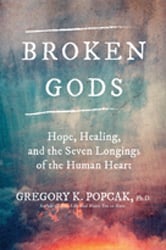My beloved former college roommate (mentioned here) encouraged me to read Rob Bell‘s book, Love Wins. I’d heard about it. Apparently it pissed off a lot of Evangelicals. My ears usually perk up when American Evangelicals get all worked up over something. Seeing as how this book was published by Harper One and not his usual Zondervan, I’m guessing Bell has annoyed more than a few establishment Christians.
I first heard about Rob Bell three years ago when I was visiting family in Australia. One set of family over there are evangelical Christians (I believe little e, as opposed to big E). They spent 15 years in Ethiopia as missionaries and are still heavily involved in world missions. One night my husband, infant son and I stayed the night with them as we passed through Canberra on our way to Sydney. ‘Have you heard about this guy, Rob Bell? He’s a film maker,’ asked my cousin, Ro. I had not and I admit I was expecting something incredibly schlockey. Some bad, trying to be cool, ‘let’s save souls’ kind of film.
Boy, was I wrong.
Rob Bell made a bunch of short films, each centering on a one word idea. We watched one called Breath and I was blown away. It was beautifully made and resonated with me. In fact, when I got back to the US I ordered a copy of Breath for a friend and ordered She, as I was interested in how Bell would approach woman. I thought it was great.
So when I picked up Love Wins I knew it would be worth reading. Let’s get to reviewing it, shall we?
I think the first thing I need to get out of the way is: OMG Rob Bell’s writing style makes me want to punch him. It is written like he speaks. Which might sound great if read aloud, and it makes the book, all 200 pages of it, easy to read in one afternoon (if you don’t have small children), but it REEKS of smug, hipster sermons. I pretty much hate sermons in general, but smug, hipster sermons – like I said – make me want to punch things.
Style aside, the second thing I need to get out of the way is that when I closed this book I did so with a resounding YES. YES!! THIS! I still don’t want to be a Christian, but I feel like Bell and I have more in common than we don’t. If this could be the future of American Evangelical Christianity, then, folks, we will be ok.
The book is primarily concerned with the concept of hell. How can a loving god condemn people to hell? What does it mean to be ‘saved’?
When talking about a hypothetical person and whether or not he was saved Bell says:
Some believe that he would have had to say a specific prater. Christians don’t agree on exactly what this prater is, but for many the essential idea is that the only way to get into heaven is to pray at some point in your life, asking God to forgive you and telling God that you accept Jesus, you believe Jesus died on the cross to pay the price for your sins, and you want to go to heaven when you die. Some call this “accepting Christ,” other call it the “sinner’s prayer,” and still others call it “getting saved,” being “born again,” or being “converted.” (pg 5)
This is all part of what is called a ‘personal relationship with Jesus.’ Except, as Bell points out, “the phrase ‘personal relationship’ is found nowhere in the Bible.” (p 10)
Bell talks about what the Bible says about who gets in to heaven – and it’s clear that there is no formula. He also talks about the when of heaven. This part really interested me, as I have long thought that ‘the kingdom of heaven is at hand’ – heaven is now, just like hell is now. Eternity permeates all things. Eternity is all time and therefore is now, and the past, and the future, and mostly just now. For many of the people to whom horrific and unspeakable things occur, for people who live in fear daily, the idea of eternal flames might actually be more comforting than this world. I believe that redemption happens daily, all around us, in every moment – it doesn’t wait for Judgment Day. Just like hell exists on earth thanks to the reality of sin – systemic and personal, institutional and the kind of evil that gets headlines in news programs that want to scare you. And Bell thinks so too.
Bell lists out all of the places that hell is talked about in the Bible. There aren’t many of them. Gehenna is one of the words that’s often used to describe hell. Apparently it means a garbage heap, the kind that gets burned. Gehenna was actually a garbage dump. This is the first time I’ve heard of this. I find it sad that one image is what has been run with to create an entire ideology of an eternal burning hell.
All of this smacks of what is called Universal Redemption – the idea that eventually everyone goes to heaven. That we all get saved. I believe this, in as much as I believe in a concept of heaven and being saved. Bell got heat for this, even distancing himself from the phrasing. But as he points out, the Christian tradition “is, after all, a wide stream we’re swimming in.” (p 110) I think people often forget this. The media is dominated with blowhards who think their way is the ONLY way, their Christianity is the ONLY way to be Christan. But Christianity is a living, breathing religion. It has changed and shifted, expanded and contracted over the ages. It is shaped by time and place and the people who live it.
(This also makes me believe in a God who changes too. I think the idea of a God who NEVER changes is bad theology, but that’s a topic for another time.)
I do have criticisms of Bell’s occasional discussion of pagan religion (ancient, but still) and his understanding of sacrifice. It smacks of history learned via a conservative Christian lens (Bell attended Wheaton College and Fuller Theological Seminary, so his evangelical cred is rock solid). Frankly, it’s pretty offensive. “Do you ever strangle a bird and then place it on a rock for good luck?” (pg 123)
Um, no. No one I know does that. The people that I know that offer animal sacrifice do it as an offering. Not a bribe. Not a superstition. An offering. A gift from one being to another.
“Just the thought of such practices and rituals is repulsive. So primitive and barbaric.” (ibid) I sometimes offer up part of the chicken I’ve cooked. How is eating an animal carcass less barbaric and repulsive? I hope Bell is a vegan because his logic in this section sucks. Just because my hands aren’t bloodied by killing the chicken (or the cow for the hamburger or the pig for the bacon) doesn’t make me any less complicit in animal sacrifice (which is what we omnivores are involved in every time we eat animal flesh, as they sacrifice their lives so that I may eat and live). Later on Bell talks about the sacrifice of death for the living (pgs 130-131). But he’s caught up in some outdated understanding of ancient pagan traditions.
Getting back to the main concept of who is saved and who isn’t, Bell has this to say:
And then there is an exclusivity on the other side of inclusivity. This kind insists that Jesus is the way, but holds tightly to the assumptio that the all-embracing, saving love of this particular Jesus the Christ will of course include all sorts of unexpected people from across the cultural spectrum.
As soon as the door is opened to Muslims, Hindus, Buddhists, and Baptists from Cleveland, many Christians become very uneast, saing that then Jesus doesn’t matter anymore, the cross is irrelevant, it doesn’t matter what you believe, and so forth. Not true. Absolutely, unequivocally, unalterably not true. What Jesus does is declare that he, and he alone, is saving everybody. And then leaves the door way, way open. Creating all sorts of possibilities. He is as narrow as himself and as wide as the universe. He is as exclusive as himself and as inclusive as containing every single particle of creation. (p 155)
Sounds like Bell has been influenced by Process Theology. To which I say, RIGHT ON.
I also really loved his discussion of the story of the Prodigal Son. Bell discusses this in terms of the stories we tell ourselves about situations. We get caught up in our story, never questioning our version. I know I’ve done it, and it’s often what keeps me separate from the love of others or the embrace of a community.
—–
Having written the above I decided to go and read the reviews of others. I particularly liked this summation of Bell’s ideas on heaven:
His argument progresses to this: Because heaven will eventually come to earth, if we’re to take heaven seriously, we must take the suffering that exists in the world seriously now. Therefore, we are called to participate “now in the life of the age to come. That’s what happens when the future is dragged into the present” (p. 45). In light of this, humanity’s role within creation is redefined so that we are not so much stewards as we are God’s partners, “participating in the ongoing creation and joy of the world” (p. 180), and engaging in creating a new social order with Jesus (p. 77). This language of partnering and participating is frequently applied by Bell to causes of social justice. (From Blogging Theologically)
Reviews take issue with his exegesis or his translation of certain words (I have never been a serious biblical studies student, nor do I know Greek, my emphasis has been systematic theology, religious history and feminist critique). But reviewers, and many Christians it seems, are unwilling to embrace a God that embraces everyone.
Many of the reviews I read raise good points about Bell’s selective use of quotes from the Bible and some of his flawed logic. It’s true. This is not an academic book. It is clearly meant to get people who don’t really want to be Christians to shout YES after they’ve finished it. (Hey, it worked!) This book will likely frustrate a theologically minded reader, and not just because Bell seems to hate full sentences and margins. But I still think it’s aimed at the best that Christianity has to offer.
Ultimately this book flips the bird to the loud, angry Us vs Them, Evangelical Christians. I’m ok with that. And I still want to buy a copy for my in-laws.
——-
For more links to reviews of this book, see this website. For a thoughtful Pagan review of the book by John Franc, please click here.











